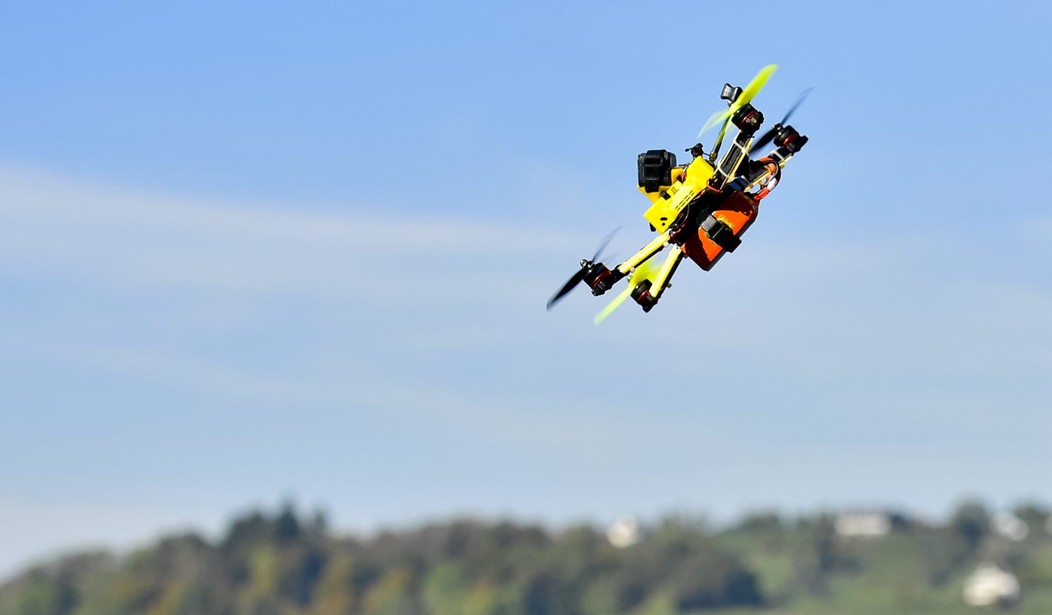Drone industry groups are battling a proposal to create uniform drone trespassing standards, arguing that regulation of altitude over private property would “foster endless litigation between landowners and drone operators” and “will not reduce the patchwork of different laws as intended.”
The Uniform Law Commission is scheduled to meet Friday through Sunday in Detroit to consider a draft of a change in tort law related to drones, stating in a preparatory document that “existing law will fail to protect landowners and will fail to clearly define what conduct by drone operators is and is not acceptable.”
“The aerial trespass doctrine was crafted before the advent of unmanned aircraft. The doctrine was created against the backdrop of laws and regulations that have traditionally ensured that most manned aircraft would fly at set distances from people and property. Given its legacy and historical development, the aerial trespass doctrine will likely prove inadequate to address trespass concerns especially as unmanned aircraft grow in popularity,” the document continues.
“Importantly, the backdrop of regulations designed to keep manned aircraft away from people and property does not exist for unmanned aircraft as FAA regulations specifically confine unmanned aircraft to airspace within 400 feet of the ground and structures.”
Raising questions regarding drone-related issues such as voyeurism and nuisance law, the commission document notes that “unlike the per se right of action in trespass to land and the rule for kites, balloons, and projectiles, aerial trespass as presently understood does not afford such an automatic exclusionary right against non-consensual entries” and “in an era of drones, maintaining the existing aerial trespass doctrine will likely result in a substantial increase in litigation” as courts struggle to determine what altitude would constitute a violation of a property owner’s airspace.
The ULC, an influential group of lawyers that has been drafting and promulgating proposed uniform laws since the group’s founding in 1892, is proposing a 200-foot ceiling — if drones fly under this altitude, operators would have to get permission from property owners first.
The drone industry, fearing that the ULC’s model legislation that would be presented to legislatures across the country for consideration could reshape the use of small unmanned aircraft, is arguing that the lawyers are stepping into territory where they don’t belong as the federal government controls airspace regulation.
Last week, 19 drone associations and businesses — including Amazon, Verizon, BNSF, the Association for Unmanned Vehicle Systems International, and the Academy of Model Aeronautics — wrote a letter to ULC president Anita Ramasastry arguing that “the underlying premise that a new, uniform state tort is needed to provide property owners recourse for intrusive drone operations is incorrect.”
“Second, if the ULC nevertheless desires to adopt an aerial trespass tort for drones despite the flawed premise, the proposed tort should not create a ‘per se violation.’ Third, although the Act correctly recognizes the potential for federal preemption, certain changes are necessary to properly apply preemption principles,” the letter states. “Fourth, Section 302 of the Act should not place the burden of proof on drone operators defending against suits alleging the tortious acquisition of images. Finally, if the ULC determines that state legislation on drones is necessary, the legislation should make clear that localities cannot regulate the ownership or operation of drones unless such regulation (i) is expressly authorized by state statute and (ii) is not preempted by federal law.”
The associations contend that flying a drone under 200 feet does “not interfere with the use and enjoyment of land” and said drone operations “have such a minimal impact that it would be difficult or impossible for the landowner to demonstrate injury under traditional tort law.”
As far as a drone snapping photos or shooting video during its flyover, the industry groups acknowledge a “reasonable expectation of privacy” on private property but said the proposal “simply goes too far.”
“It would establish a unique standard for images captured by drones that does not apply to images captured by other aircraft,” they wrote.









Join the conversation as a VIP Member